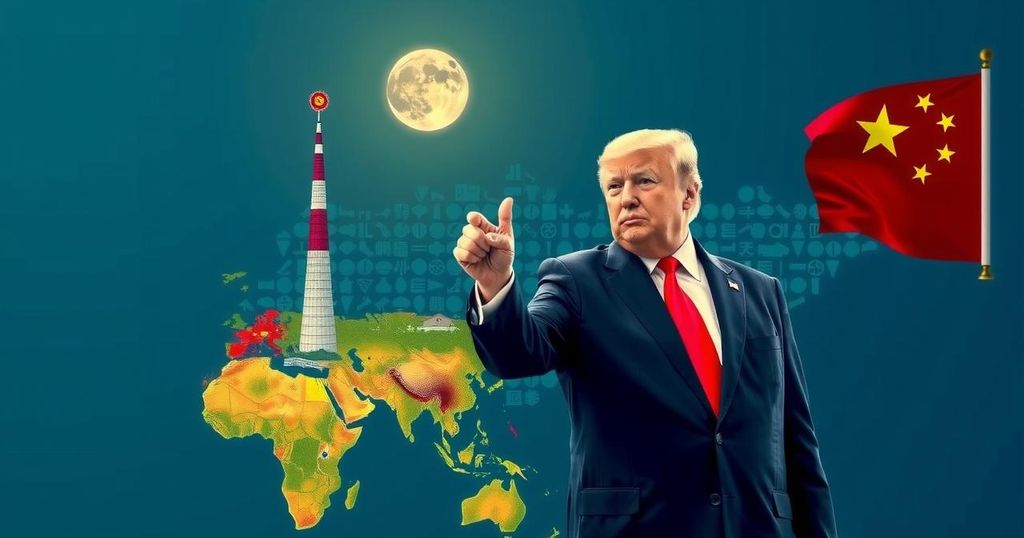China Stepping Up as Climate Leader Amid Trump’s Return

With Donald Trump’s expected return to the presidency, China is positioning itself as a leader in climate diplomacy. At the COP29 talks, China outlined its international climate finance efforts while resisting classification as a donor. The dynamics between the U.S. and China are likely to unravel, allowing China to potentially step into climate leadership amidst Trump’s skepticism towards climate agreements and foreign aid.
As former President Donald Trump prepares to reclaim the presidency, there are significant implications for global climate diplomacy. China, the largest emitter of greenhouse gases and a frontrunner in renewable energy, is positioning itself as a leader in climate action. At the recent COP29 climate talks in Azerbaijan, China illustrated its cooperative approach by detailing its contributions to international climate finance, even as it resisted being categorized as a donor country, preferring to maintain its developing nation status. The diplomatic tone observed in Baku stands in stark contrast to the contentious interactions at last year’s COP28 in Dubai, where collaborations emerged between China and former U.S. climate envoy John Kerry. The dynamics between the United States and China are predicted to worsen once Trump resumes office, as he is known for his skepticism regarding international cooperation on climate issues. Analysts suggest that Trump’s return may allow China to enhance its international standing by positioning itself as a reliable global power. Despite being urged by developed nations to commit to financial support for poorer nations suffering from climate change, China remains reticent. Vice Premier Ding Xuexiang revealed that since 2016, China has contributed $24.5 billion to climate finance, indicating considerable involvement. However, negotiators emphasize that transparent reporting is vital for accountability, prompting discussions on how China might offer future aid while sustaining its developing nation status. Concurrently, U.S. leverage in climate negotiations is expected to diminish with the anticipated Trump administration, although it is recognized that the U.S. might face challenges in significantly impacting global climate policy moving forward. Chinese officials aim to navigate these alterations by negotiating actively with European partners while addressing their own domestic environmental concerns. Some analysts posit that Trump’s potential withdrawal from the Paris Agreement might inadvertently simplify negotiations, given the extreme positions typically adopted by the U.S. under his leadership.
The article discusses the evolving dynamics of international climate diplomacy following the anticipated return of Donald Trump to the presidency. Emphasizing China’s proactive stance, it outlines the implications of Trump’s skepticism towards climate agreements and foreign aid on global cooperative efforts to combat climate change. The context provided serves to highlight the competing narratives between the U.S. and China, particularly regarding their roles as leading emitters and their commitments to climate finance.
The anticipated resumption of Donald Trump’s presidency may create a vacuum in climate leadership, offering China an opportunity to step into a more prominent role on the global stage. China has demonstrated its willingness to collaborate on climate finance while maintaining its status as a developing country. As tensions between the U.S. and China increase, the landscape of international climate negotiations could experience significant shifts, potentially complicating future discussions. China’s focus on advancing its climate agenda in the shadow of U.S. skepticism underscores the complexities of global climate diplomacy.
Original Source: www.rfi.fr






